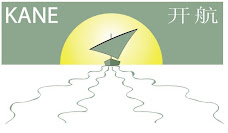Let's take a quick look at the daily headlines regarding China's stock market over the last four days:
Asian stocks rise on hopes worst is over (January 24, Agence France Presse)
Asian Markets Rebound After Fed Cut(January 23, AP)
Chinese shares follow world markets down, sink 4 pct at middday(January 22, Xinhua)
Asian Stocks Plunge In Global Selloff On US Recession Fears(January 21, Market News International)
In an article from two days ago, Kevin Rudd, a journalist for Australia's popular "The Advertiser" wrote the following, "It may be the Chinese and Indian economies and their demand for Australian minerals, meat and grain, which determine the direction of the world economy, not Wall Street."
China's Statistics Bureau today released figures for 2007 National GDP growth - not surpisingly it was a whopping 11.4%! The breakdown by level of industry was primary (agriculture) 3.7%, secondary (manufacturing) 13.5%, and tertiary (service) 11.2%. However, the real growth in manufacturing is closer to 18.5% (stats.gov.cn). The latter represents what is known as the "Total Value-added Industrial Growth" (全年规模以上工业增加值比上年增长18.5%)
So, despite all the rhetoric that China (and India) are the new centers of the global economy, the outright economic shift to Asia has still not taken full effect. However, the effects of the recession we are headed for are bound to influence the shift and in my mind it will only expedite it.
There are three major factors that contribute to this convergence:
1) Lowered interest rates in the US
2) Higher commodity prices
3) Appreciating RMB
4) Higher bank reserve ratio in China
1) Lowering the interest rates in the US is traditionally done for one reason: increase consumer spending. The problem with this logic in January of 2008 is that 2) Higher commodity prices have forced consumers into high levels of debt and spending based on increasingly higher cost goods. Since the last time the Fed cut rates in the early part of this decade, gas is up from an average of $1.40 (some points as low as $1.20) to $3.09 in December of 2007. 500 Kilowatt Hours (KWH) of Electricity cost you $48 in 2001. It's now up to $60 as of December 2007. Even the cost of 1 dozen eggs has jumped from $1 to $2 in that time period. (data.bls.gov) While many other commodities, such as fruits and bread have grown in step with inflation, the energy shocks are enough to wreak havoc on our economy.
3) The steadily appreciating RMB is causing China to make leaps and bounds in two related ways: A) Slowly the Chinese are able to buy more heavy equipment from Europe, the US, Taiwan, and Japan. Simultaneously, they are quickly building new roads, infrastructure, and factories in the hinterland to keep their economy relatively competitive with poorer development manufacturing countries in south Asia (India, Pakistan, Bangladesh), Mexico, Africa, and South America. This will offset many of the price pressures that they are facing. Here's an example. We know of a factory in the western part of Shandong where they are paying workers $0.40 an hour to do the same labor that was being done 10 years ago in Shanghai or Guangzhou for an even higher hourly wage. How can this be? It is because that region is so poor, that the workers can accept that low wage and still live comfortably. Meanwhile, the central and local governments have dramatically increased the port and road infrastructure at Rizhao Port and Lianyungang Port, a mere 3 hours drive from the factory.
4) China raised the central reserve ratio for its banks to 14% last week. That's high, but not high enough. According to experts, the prediction is that they will continue to raise it until it reaches 19% later this year. What this does is reduce the amount of money that banks can loan out to their customers. This in turn reduces the amount of money to start new businesses, buy homes, and get credit cards. It makes the economy much tighter and more secure. They are doing this to prevent a meltdown in their banking system. Given the amount of cash they have in the central bank, it is going to be possible that they will not need banks to lend to continue building roads and creating factories. The central government will effectively "fill in" as projects are short on cash.
All of this has led to not only predictions of a stronger China, but as you will see in the following quotation from George Soros' speech to the World Economic Forum in Davos, Switzerland, the dollar's day as king has passed us by...
“ 'The current crisis is not only the bust that follows the housing boom, it's basically the end of a 60-year period of continuing credit expansion based on the dollar as the reserve currency,' Mr. Soros said in a debate today at the World Economic Forum in Davos, Switzerland. 'Now the rest of the world is increasingly unwilling to accumulate dollars.' The dollar's share of global foreign-exchange reserves fell to a record low of 63.8 percent in the third quarter as demand for U.S. assets waned after the collapse of the U.S. housing market, according to International Monetary Fund data. The greenback accounted for 65 percent three months earlier. The euro's share rose to 26.4 percent from 25.5 percent. IMF quarterly figures go back to 1999, the year the euro was introduced..." (Bloomberg)
Thursday, January 24, 2008
Volatile Stock Markets and China Still Rocking
Labels:
Appreciation,
Asian Markets,
Australia,
China,
Commodities,
Electricity,
Gasoline,
GDP,
India,
Infrastructure,
Reserve Ratio,
RMB,
Soros,
Statistics Burea,
Stock Market
Subscribe to:
Post Comments (Atom)


No comments:
Post a Comment